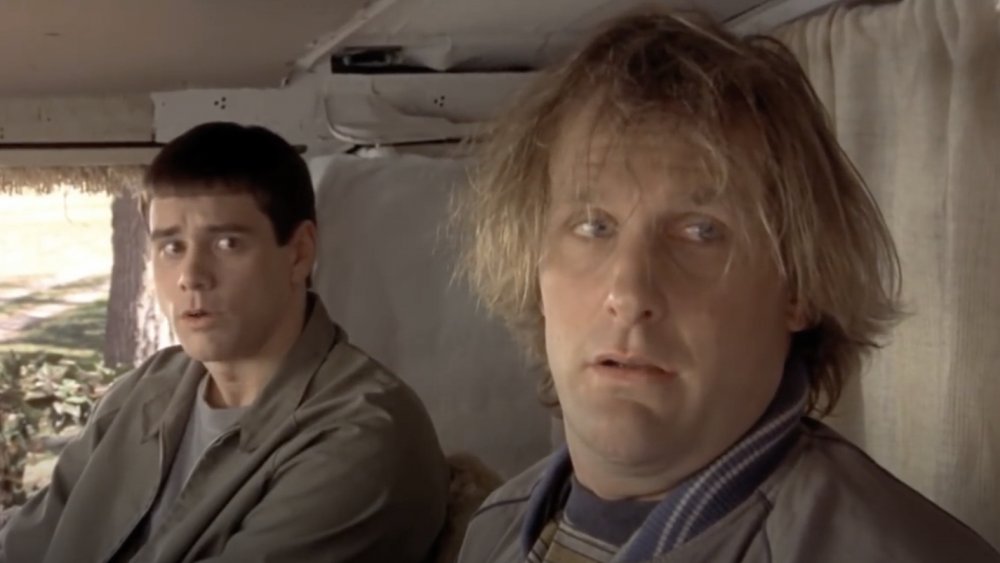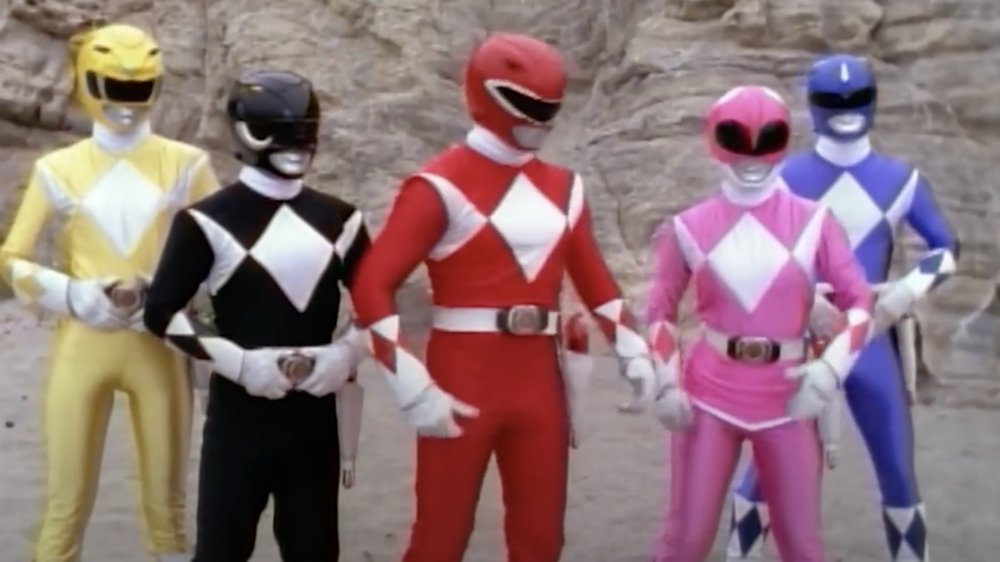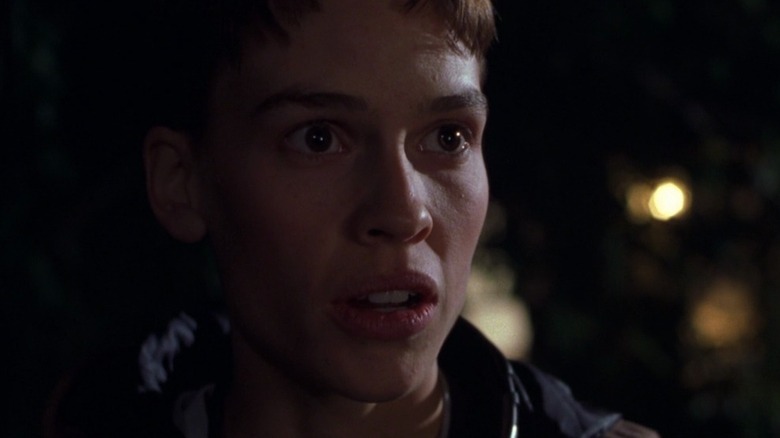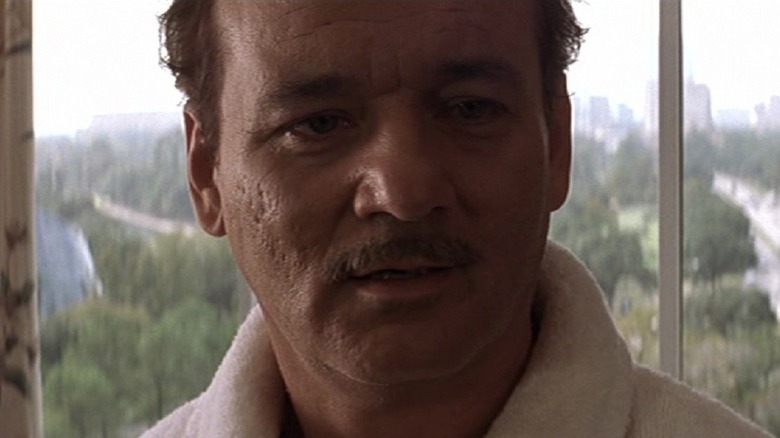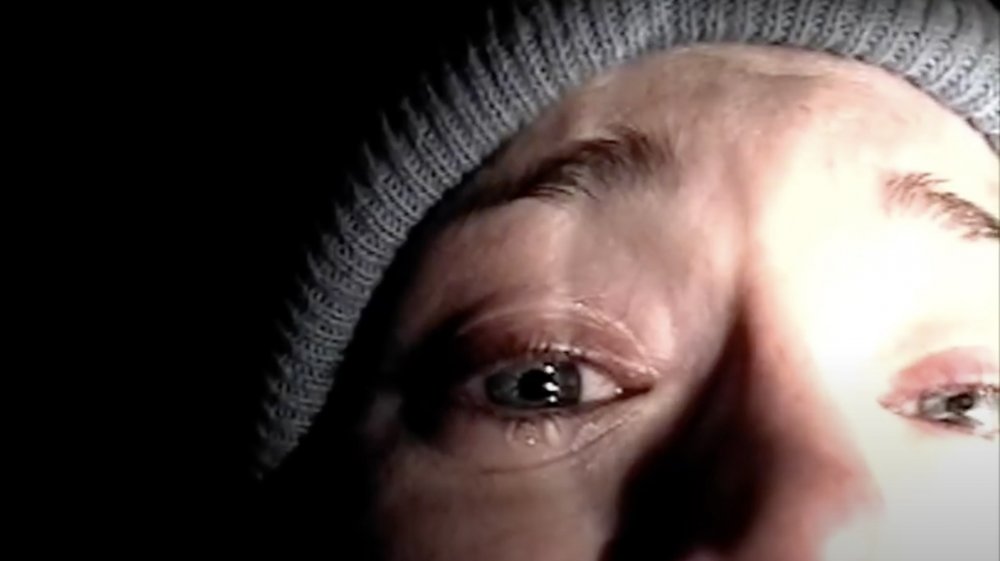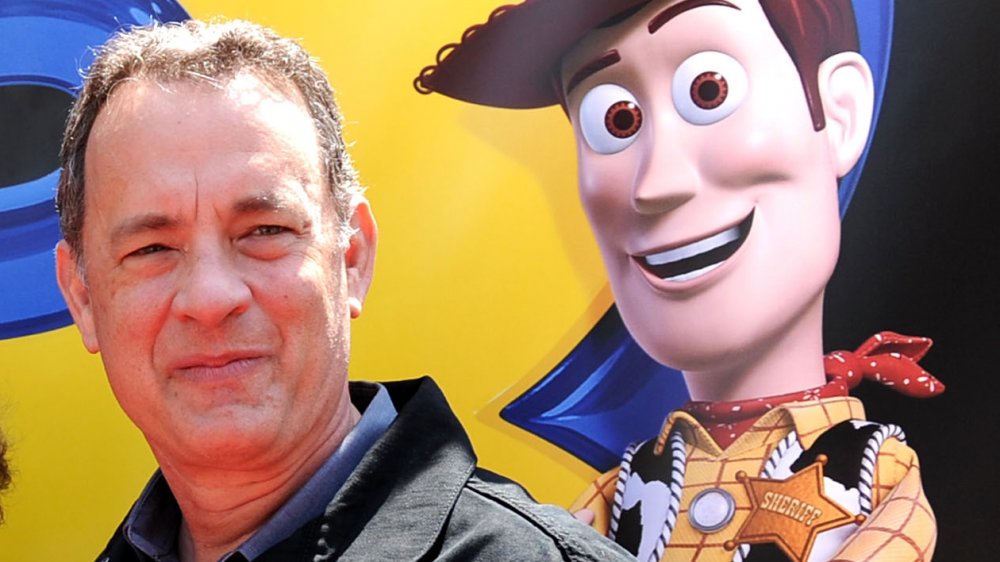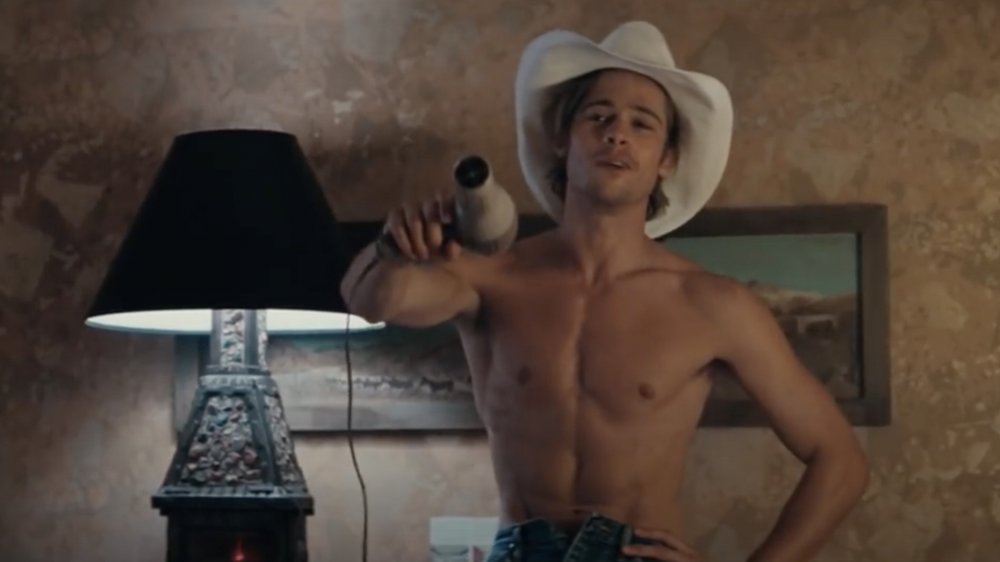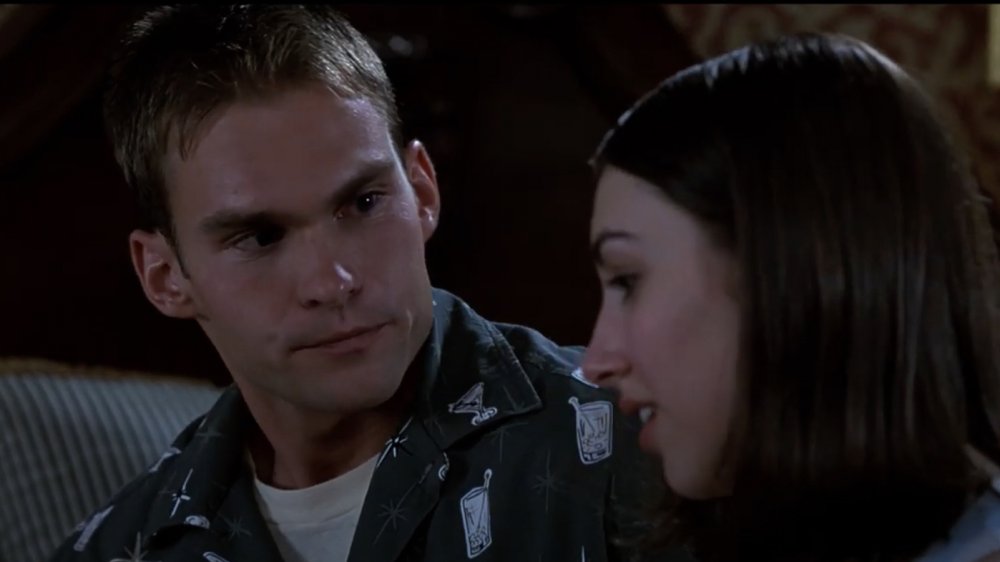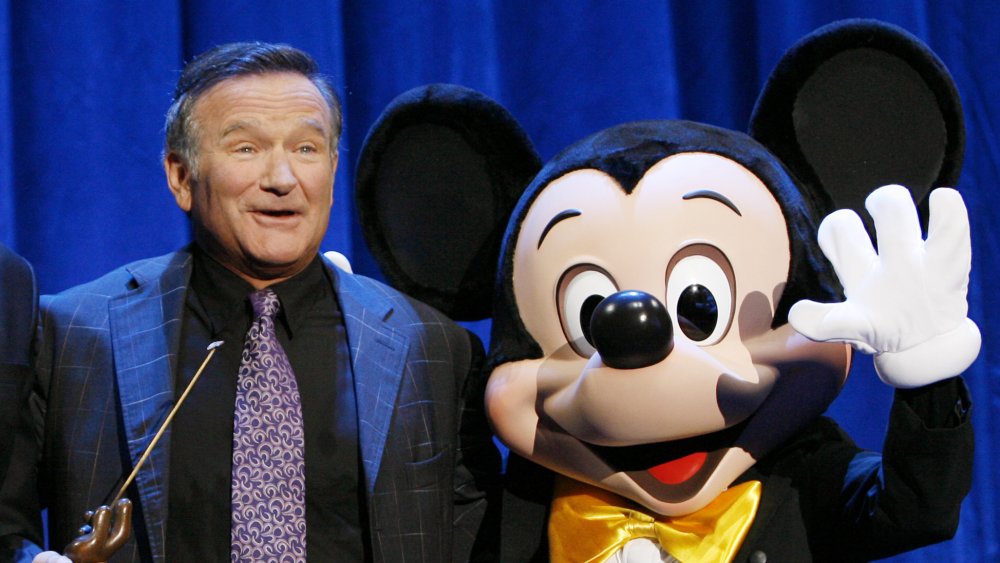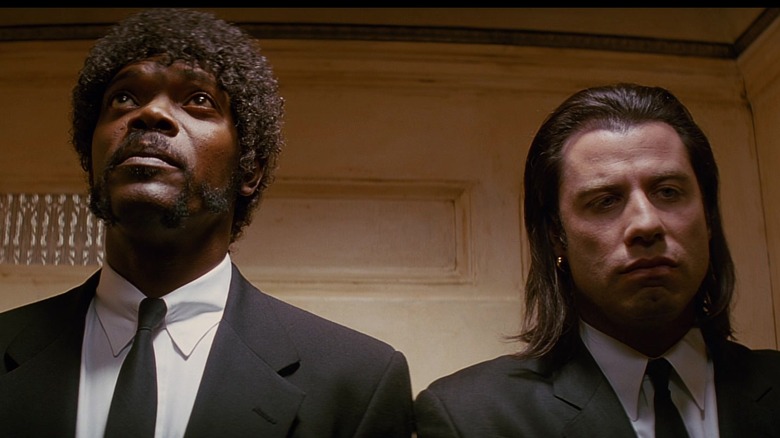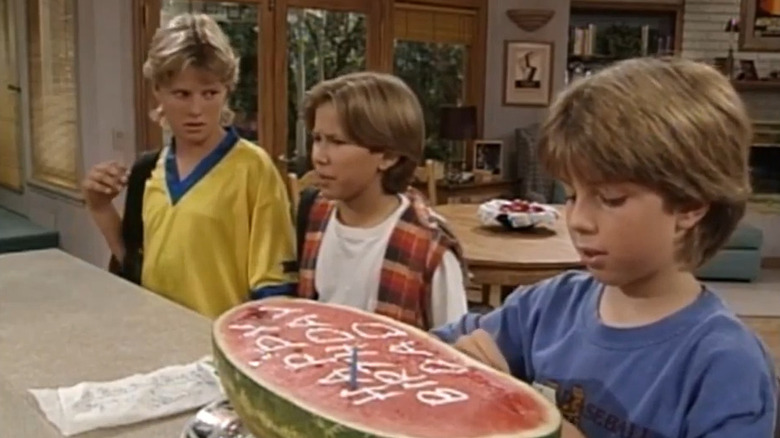Famous Actors Who Barely Made Money For Their Roles In The '90s
When you imagine famous Hollywood actors, thoughts of all the glitz, glamour, and most certainly millions of dollars most likely come to mind. After all, those extravagant outfits, monstrous mansions, and shiny cars must cost a pretty penny. However, these hot shots all had to start somewhere, and a lot of them started out pretty small — on the pay scale, that is.
You may be surprised to know that even as part of some of Hollywood's biggest hits, many big-name actors made next to nothing for their work on them. Quite a few took on these roles for little pay as a promise to themselves that it would help to accelerate their careers. Sometimes it worked, but unfortunately, sometimes it didn't. As Jim Carrey says in "Dumb & Dumber," "That's as good as money, sir. Those are IOUs."
Here are some of the most famous faces who weren't paid megabucks for roles in the '90s.
Jeff Daniels got a dumb deal
It's every actor's dream to win an Oscar, and Jeff Daniels seemed like he was on his way there in the early '90s with several critically acclaimed dramatic roles already under his belt. But when auditions for "Dumb and Dumber" came around in 1994, Daniels decided it was his time to shine. He told his agents, "You know what? I'm bored with the career. I want to change it up," he explained during a Hollywood Reporter roundtable. Even one of the film's directors, Bobby Farrelly, once told the same outlet that "Daniels was not the obvious choice." Daniels' agents and the studio didn't want him to do it either, but co-star Jim Carrey wanted him to be the Harry to his Lloyd, so they had to listen.
Trying to make him an offer he could easily refuse, the studio offered Daniels a mere $50,000 for the co-starring role, but instead of turning it down, he accepted it. Comedy was more important to Daniels than the cash. "'Dumb and Dumber' was my attempt to establish range," he told People.
In 2014, when the sequel was being released, the writers revealed that Carrey was paid $7 million for the first movie compared to Daniels' relatively lousy $50,000. "The whole budget was $16 million and Jim got seven, which was the most ever for any comedic actor," co-director Peter Farrelly divulged to The Hollywood Reporter. We just hope Daniels earned a better salary in the sequel.
These Rangers could have just worked at McDonald's
"Mighty Morphin Power Rangers" had the highest ratings for a kids show when it first aired in 1993 (via The Baltimore Sun). But the chorus to the show's theme song — "Go, go, Power Rangers!" — should have been more like "Oh, no, Power Rangers!" considering the amount of money the original cast was (or more accurately, wasn't) making.
The actors have said they barely shared in the billions of dollars that came in from the video games, toys, comic books, and more that were sold — all of which they helped popularize. Many of them even worked regular jobs before having to show up six days a week for filming. "I could have worked the window at McDonalds and probably made the same money as the first season," Red Ranger Austin St. John divulged to HuffPost. "It was disappointing, it was frustrating, it made a lot of us angry."
Co-creator Shuki Levy told The Hollywood Reporter that he would simply tell the young actors, "When you start something, and you haven't done much as an actor yet and you get an opportunity to be on such a hit, I think one should look at the positive side rather than what he's not getting enough of." However, there seemed to be no bright side to starving in stardom. After two years, when the actors were unable to unionize and/or change their pay, three of the original six stars left the show.
Hilary Swank should have cried over her cashout
When the movie "Boys Don't Cry" hit theaters in 1999, it gave Hilary Swank her first Oscar for best actress in a leading role — and a paycheck of only $3,000. But the young and emerging actor didn't seem to mind. "I thought, 'Wow this is my opportunity to break into film,'" she told Indiewire, adding, "Famous people weren't taking the risk on independent film, and they weren't getting paid to do independent film, so there was no interest for them."
The script seemed to speak to Swank too. The film follows the true and tragic story of Brandon Teena, a transgender man that the then-24-year-old actor portrayed. Following the release of the film, Swank even spent 10 years as the spokesperson for one of America's biggest organizations that supports LGBTQ youth.
Before the movie was released, Swank was pretty much unknown in the entertainment industry. Not only did "Boys Don't Cry" give her a break into the business, but it also gave her a great sense of purpose to be part of such a groundbreaking film. The paycheck, however, not so much. "Everyone put their heart and soul into this movie," Swank said proudly upon accepting her Oscar, adding, "And God knows no one got paid."
Bill Murray will do any Wes Anderson movie for any price
When Bill Murray first read the script for 1998's "Rushmore," he didn't want to meet with the director, Wes Anderson. "There's nothing to talk about. It's all right there," Murray explained to Collider. "It was so precise, what he wanted, that I knew he knew exactly what he wanted to do and I didn't have any doubt that he was going to be able to do it." An important thing he also seemed to never talked about was his salary. He was paid only $9,000, but he didn't care. In fact, Murray enjoyed the script so much that when the studio refused to budget for a helicopter scene, he wrote a $25,000 check to cover it — almost three times his own salary. Funnily enough, in 2013, Anderson revealed in a tell-all book that he "still has Murray's un-cashed check" (via Vulture).
Luckily, Murray did receive some of "Rushmore's" profits from the box office when it was released, and ever since, Murray has been a mainstay of Anderson's movies. Whenever the famed director asks Murray to star in one of his new films, "It's an automatic yes," the actor told Today. On top of the fact that Murray has other creative revenue streams, there's just something special to him about Anderson's stories. "I've liked most of the characters I've played, but writing-wise they weren't all finished," Murray told Interview, adding, "I think Rushmore is the first movie I've done in a while that's completely whole."
The frightening paychecks of The Blair Witch Project cast
With the production value of "The Blair Witch Project," it's no surprise that the cast made next to nothing for it. The film's three up-and-coming actors were paid only $1,000 each, and told to go into the woods with a camera and improvise scary scenarios. As sketchy as it first seemed, aspiring actor Heather Donahue was stoked for the opportunity, beating out 2,000 others for the leading role. "My thought was, 'Well, when else am I going to get the chance to improvise an entire feature?'" she told Paper.
With only a $35,000 or $60,000 budget (depending on conflicting sources), the movie made over $248 million when it hit theaters in 1999. Most of the film's success was attributed to its viral marketing campaign, which included intimating that Donahue and her co-stars actually died in both the film and in real life. Donahue's IMDb page even read "deceased," which unfortunately proved to be an accurate harbinger for her and her co-stars' careers.
When a sequel was announced in 2000, none of the original cast were asked to join, even though their images were used on promos everywhere, so they sued. It's unclear what happened with that lawsuit, or what the cast's total compensation amounted to. Donahue, however, relayed to VICE a perfect allegory of her financial situation during it all. "It was me in my '84 Toyota Celica breaking down in L.A. ... underneath a billboard with my own face on it."
Tom Hanks made Toy Story for a truly low rate
Disney/Pixar sure has a friend in Tom Hanks. In 1995, he voiced Woody in a family film called "Toy Story." It was a completely new kind of animation that immediately blew Hanks away. "I watched this test probably six times in a row and just thought, how did they do that?" he told The New York Times, adding, "Not how did they make the image, but how did they make it spark to life so seamlessly?" Hanks was quickly on board with the vision Pixar creators had in mind.
However, according to the Los Angeles Times, Hanks was offered a typical scale salary amounting to less than $50,000 for the role, even though he had two Oscars and had just earned $40 million from his shrewd backend deal on Forrest Gump (via E! News). The good news? Hanks raked in "$5 million upfront ... applied against worldwide home-video royalties for 'Toy Story 2.'" Nice raise, huh?
With more sequels and billions of dollars in box office revenue, toy sales, video games, and theme park attractions — all of which came with new rounds at the negotiating table — we'd have to say it was a great deal for Hanks to make. "[My daughter] pointed out to me that Woody will be part of that for the rest of time, the same way Mickey is," Hanks told The New York Times. "And in no small way, I am Woody."
Brad Pitt was barely paid in this '90s hit
Director Ridley Scott got Brad Pitt for a steal back in 1991. Considering that Brad Pitt's estimated net worth is around $300 million, as of this writing, it's quite shocking that he reportedly made only $6,000 for his role in Scott's movie "Thelma & Louise" (via Refinery29). "I had nothing to show for myself except for my extra work, and they took a chance on me," Pitt explained at the Santa Barbara International Film Festival. The crew had already begun filming and had gone through actor after actor before they found Pitt. "I think they were desperate, to tell you the truth," he added.
It was a film that didn't expect to get much buzz. "We were hoping people would see it because it was a small budget," star Geena Davis even told ABC News, but luckily, people did go see it. It was Pitt's seven-minute appearance in the movie that propelled him to a life of stardom on the big screen ever since (via Business Insider). "Thelma & Louise" made over $45 million at the box office worldwide, which now sounds more Pitt's entire paycheck for each of his movies.
Seann William Scott got a small piece of the pie
One of the biggest comedies to come from the '90s was the movie "American Pie," and even actor Seann William Scott's salary was something to laugh at. It was his first big movie role, and he was paid only $8,000 for it. "Which was awesome at the time," he said on "The Ellen DeGeneres Show," adding, "Because I would have paid them to be in the movie."
Scott told the daytime host he actually had to work odds jobs to get by in between the time he filmed "American Pie" and its premiere. He cleaned toilets at a law firm and sold churros at the local zoo. But he quickly tired of the latter gig, abandoning his duties within hours of his first day. Amazingly, a serendipitous encounter with a caged gorilla inspired him to quit immediately, and the next day he booked "Final Destination." After "American Pie" hit theaters in 1999, he was an instant star, going from one big comedy to the next, including "Dude, Where's My Car?," "Old School," and "The Dukes of Hazzard."
Of course, "American Pie" became a hit franchise, and by the time the fourth installment landed in 2012, Scott had gone from making $8,000 for the role of Stifler to $5 million (via The Hollywood Reporter). "I love the movie. I love the character," Scott told Conan, adding, "It's given me a career and a life I never would have imagined."
Robin Williams lent his voice for little money
When "Aladdin" came along, Robin Williams knew he needed to do it for his kids — regardless of the paycheck. While the comedian was usually making $8 million per movie, he reportedly agreed to take $75,000 for his role as Genie (via the Los Angeles Times). "Money's never been the reason for me to recommend anything," his ex-wife and, at the time, close career confidante, Marsha Garces, told New York Magazine. "Unless the entire country collapses, we have as much as we'll ever need. I'm more interested in looking at what Robin hasn't done and seeing what's next. I'm prejudiced, but I've never seen anyone with his range."
Genie was actually supposed to be a side character in the movie, but after Williams recorded more than 30 hours of voiceover gold for Disney, they decided to make him a major character. "I felt wonderful; that's why I did it," Williams told New York Magazine, adding, "And it was such a pleasure when it came out and people said, 'I loved it as much as my kid did.'"
But part of Williams' deal was that his voice wouldn't be used to sell Aladdin products. When Disney did exactly that, Williams protested, prompting the studio sent him a Picasso painting worth over $1 million. It may seem like a lot, but 1 million's still not much considering the film alone brought in over $1 billion at the global box office.
John Travolta's small salary was anything but fiction
In the late 1970s, John Travolta had already played a teen heartthrob in the worldwide phenomenon "Grease" and scored an Oscar nomination for his role in "Saturday Night Fever." But then his career faltered, and by the '90s, he wasn't such a hot Hollywood commodity. It wasn't until director Quentin Tarantino cast him in 1994's "Pulp Fiction" that Travolta's Tinseltown track would be revived, according to Vanity Fair.
"Quentin fought for me to be in 'Pulp Fiction,'" Travolta explained to Deadline, adding, "This guy put his reputation, his career on the line because he had that much confidence." So Travolta threw himself into the role of drug addict/introspective hitman Vincent Vega — for a relatively measly $150,000 (via Variety). It's hardly anything compared to his estimated $250 million net worth now, but as his agent Jonathan Krane explained to Variety, "The last factor in making decisions for us is price. He'll only do a movie because it's a good movie." Either way, it's a good thing he did.
Travolta's acting in "Pulp Fiction" caught the attention of the Academy and earned him his second Oscar nomination, proving everyone in Hollywood wrong about his stagnant career and getting him calls for even more big roles. As his character Vega famously says, "Did you ever hear the philosophy that once a man admits that he's wrong, that he is immediately forgiven for all wrongdoings?"
The kids from Home Improvement discovered they were a dime a dozen
Families across America made "Home Improvement" one of the most watched television shows of the '90s. But those fans would probably be surprised to know that Tim Allen's television family was almost torn apart. As the comedian-turned-sitcom-star was reportedly being paid $200,000 per episode (before receiving a raise of $1.25 million later in the series, per Entertainment Weekly), the three young actors who played his kids — Taran Noah Smith, Zachery Ty Bryan, and Jonathan Taylor Thomas — were not happy with bringing in around $8,000 each.
In 1993, the three demanded a raise to $25,000 for every episode and even refused to show up until it happened. However, producers knew there were aspiring young actors out there that would do it for less, so they simply sent out a new casting call. Realizing they were replaceable — it is Hollywood, after all — the kids quickly came back to reprise their roles (via Entertainment Weekly).
"I'm not into being a rich person. I see money as sort of like blood flowing through veins," Smith later told Lawrence Journal-World. "As much as I want to make a lot of money, I don't want to hold onto it. I want it to flow out into projects." However, those projects are no longer the Hollywood kind. Oddly enough, after wrapping the show in 1998, Smith began working on houses. "I'm now doing Tool Time for real," he told Inside Edition.


